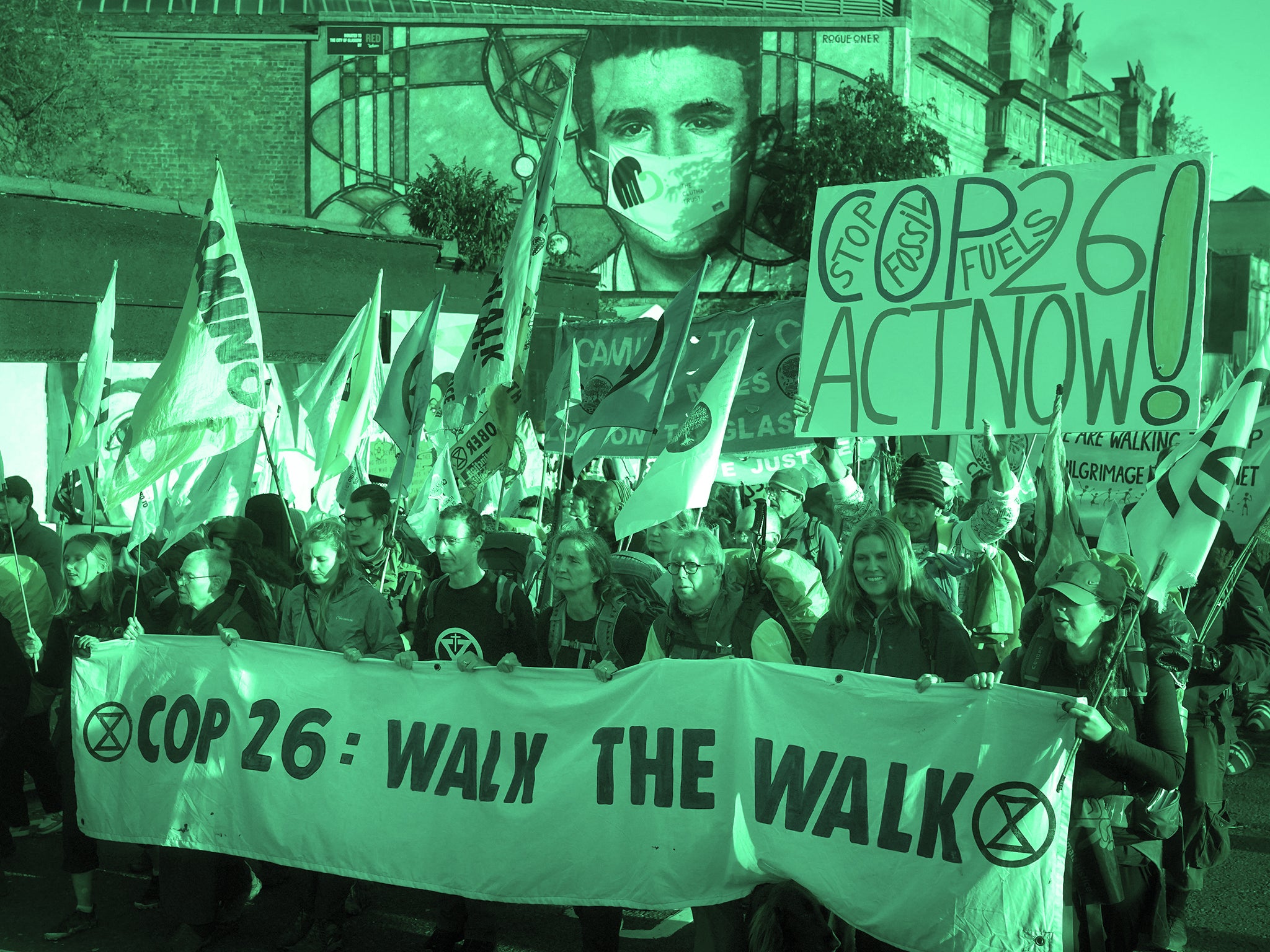What have countries actually committed to ahead of Cop26?

Your support helps us to tell the story
From reproductive rights to climate change to Big Tech, The Independent is on the ground when the story is developing. Whether it's investigating the financials of Elon Musk's pro-Trump PAC or producing our latest documentary, 'The A Word', which shines a light on the American women fighting for reproductive rights, we know how important it is to parse out the facts from the messaging.
At such a critical moment in US history, we need reporters on the ground. Your donation allows us to keep sending journalists to speak to both sides of the story.
The Independent is trusted by Americans across the entire political spectrum. And unlike many other quality news outlets, we choose not to lock Americans out of our reporting and analysis with paywalls. We believe quality journalism should be available to everyone, paid for by those who can afford it.
Your support makes all the difference.The Cop26 conference in Glasgow has been described as a make-or-break summit for tackling the climate crisis as world leaders are under pressure to embrace stronger plans to reduce emissions.
There have been a slew of announcements from governments ahead of the talks but hopes of serious action have been dented by the reluctance from some major carbon polluters, such as China, India and Australia, to sign up to changes.
Analysts warn that global warming limits are still set to be smashed under current plans unless there are far steeper cuts to carbon emissions.
What has the UK promised so far?
The British government announced late last year that it was setting a new target to cut at least 68 per cent of greenhouse gas emissions compared to 1990 levels by the end of the decade, commiting the UK to the fastest rate of cutting emissions of any major economy at the time.
Earlier this month, Boris Johnson also said that all electricity in the UK should be produced from clean sources by 2035.
That target would require a rapid switch from the remaining coal and gas-fired power stations to wind, solar and nuclear energy within 15 years - with fossil fuels only used alongside carbon capture and storage technology.
In addition, Mr Johnson’s government has set a goal of ending the sale of new petrol and diesel cars by 2030.
What are other major polluters committing to?
One of the key goals of Cop26 is convincing some of the world’s major polluters to sign up to stronger action to reduce carbon emissions.
China, the world’s biggest emitter of greenhouse gases, submitted an updated set of contributions to the UN climate body on Thursday - but critics warn the plans offer little new compared with earlier pledges from the country.
The proposal reaffirms pledges for its carbon emissions to peak before 2030 and to become carbon-neutral before 2060, while formalising a commitment to raise the share of non-fossil fuels in its primary energy consumption to 25 per cent by 2030.
India, the third-biggest carbon emitter after China and the US, has rejected calls to announce a net-zero emissions target for 2050, arguing it is more important to lay out plans to cut emissions in the nearer-term.
Meanwhile, Australia has said it will adopt a net-zero emissions target by 2050 - but the environmental group Greenpeace warns that the proposal relies on technologies that have yet to be developed and does not represent a step up in the country’s ambition.
What is the US doing?
Despite verbal commitments from US president Joe Biden to tackle the climate crisis, there are major uncertainties over whether he can get approval for domestic legislation on the issue.
Haggling in Congress is set to hamper Mr Biden’s bid to deliver on a US pledge to cut emissions by 50-52 per cent by 2030 compared to 2005 levels.
Washington has also come under scrutiny for failing to pay its fair share of financial support for climate action under an unmet pledge by rich countries to raise $100bn a year from 2020 to help poorer nations adopt clean energy and adapt to climate change.
What are experts saying about the proposals?
While there are hopes that Cop26 will lead to serious action, there is a general sense of concern that the summit is unlikely to see the world’s major emitters agreeing to necessary changes.
Saleemul Huq, director of the International Centre for Climate Change and Development in Bangladesh, said that there was a “great deal of pessimism” among the delegates from climate-vulnerable countries he had spoken to.
Meanwhile, Danny Marks, an assistant professor of environmental politics at Ireland's Dublin City University, warned that Cop26 risked being hampered by reluctance from countries like China.
“China's limited level of ambition together with insufficient pledges and policies from a number of other major countries - such as the US, India and Australia - likely means that the COP will not deliver major victories,” he said.
Li Shuo, an advisor at Greenpeace East Asia, said that Beijing's latest unambitious climate plan reflected “mistrust” over whether the US would fulfil its climate commitments.
“There's real fear that Washington's empty words will intensify an already unfair global climate order,” Mr Li said.
Additional reporting by agencies
Join our commenting forum
Join thought-provoking conversations, follow other Independent readers and see their replies
Comments